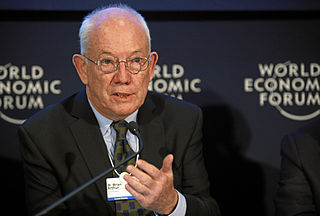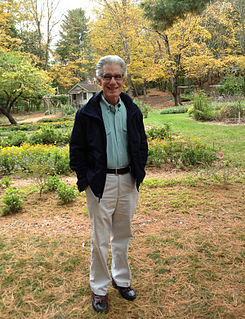A Quote by Benoit Mandelbrot
I claim that many patterns of Nature are so irregular and fragmented, that, compared with Euclid - a term used in this work to denote all of standard geometry - Nature exhibits not simply a higher degree but an altogether different level of complexity ... The existence of these patterns challenges us to study these forms that Euclid leaves aside as being "formless," to investigate the morphology of the "amorphous."
Related Quotes
The existence of these patterns [fractals] challenges us to study forms that Euclid leaves aside as being formless, to investigate the morphology of the amorphous. Mathematicians have disdained this challenge, however, and have increasingly chosen to flee from nature by devising theories unrelated to anything we can see or feel.
Mental patterns do not originate out of inorganic nature. They originate out of society, which originates out of inorganic nature. And, as anthropologists know so well, what a mind thinks is as dominated by biological patterns as social patterns are dominated by biological patterns and as biological patterns are dominated by inorganic patterns. There is no direct scientific connection between mind and matter. As the atomic scientist, Niels Bohr, said, "We are suspended in language." Our intellectual description of nature is always culturally derived.
There are only patterns, patterns on top of patterns, patterns that affect other patterns. Patterns hidden by patterns. Patterns within patterns. If you watch close, history does nothing but repeat itself. What we call chaos is just patterns we haven't recognized. What we call random is just patterns we can't decipher. what we can't understand we call nonsense. What we can't read we call gibberish. There is no free will. There are no variables.
I conceived, developed and applied in many areas a new geometry of nature, which finds order in chaotic shapes and processes. It grew without a name until 1975, when I coined a new word to denote it, fractal geometry, from the Latin word for irregular and broken up, fractus. Today you might say that, until fractal geometry became organized, my life had followed a fractal orbit.
Complexity is looking at interacting elements and asking how they form patterns and how the patterns unfold. It's important to point out that the patterns may never be finished. They're open-ended. In standard science this hit some things that most scientists have a negative reaction to. Science doesn't like perpetual novelty.
Our very name for God's Creation is NATURE, for that is what Nature is. I shall define Nature for you in simple words. Nature is an electric wave thought image of God's nature, electrically projected from His formless and unconditioned ONE LIGHT into countless many forms of conditioned light which we call matter.
Regular geometry, the geometry of Euclid, is concerned with shapes which are smooth, except perhaps for corners and lines, special lines which are singularities, but some shapes in nature are so complicated that they are equally complicated at the big scale and come closer and closer and they don't become any less complicated.
What is striking is these things [patterns in nature, e.g. fish stripes] do look like something that has been crafted. We are conditioned to think that a pattern needs a patterner and so at first glance it seems incredible to us that nature is able to do this, without any sort of blueprint, without any sort of plan. These patterns organise themselves, that is the amazing thing.



































